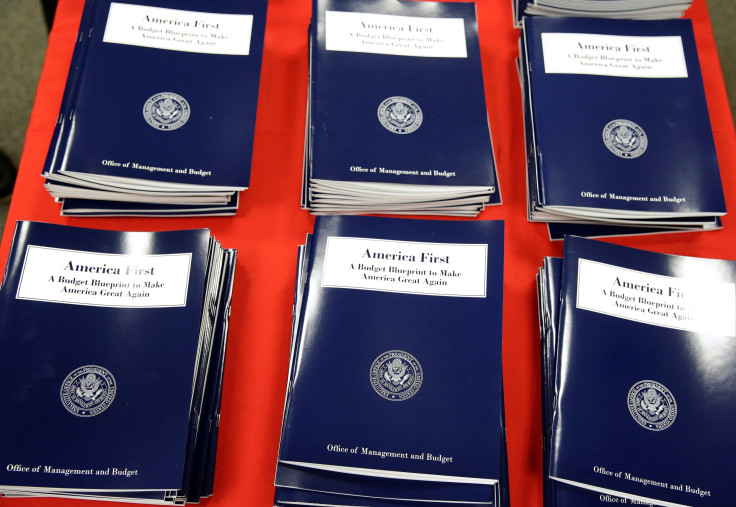Do Trump Budget Cuts Hurt The Poor? WIC Benefits, Food Stamps, Meals On Wheels In Jeopardy

President Donald Trump contradicted the largely populist bent of his 2016 campaign with the release of his fiscal year 2018 budget proposal Thursday, which recommended funding cuts to programs that feed Americans and people in disaster zones in dire need of nutrition assistance.
The Special Supplemental Nutrition Program for Women, Infants and Children, or WIC, for example, a Department of Agriculture service that provided nutrition education and aid for nearly 7.7 million low-income women who were pregnant, breastfeeding or taking care of children under five years old in 2016, would get a $200 million cut, to $6.2 billion from fiscal year 2017’s $6.4 billion. The program has, however, seen steady a decline in its total number of beneficiaries over the past five years, from 8.9 million in 2012, and saw a budget reduction of the same size between 2015 and 2016.
Read: What’s Next For Bernie Sanders? Read His Response To Donald Trump's ‘Morally Obscene’ Budget
The budget would simply eliminate the Community Development Block Program, a major funder of the Arlington, Virginia-based national organization Meals on Wheels, which works on a local level to provide nutrition education and assistance to the elderly. The loss of the grant would generate $3 billion in savings, according to the budget proposal, which said the program “is not well-targeted to the poorest populations and has not demonstrated results.”
Another assistance program in the crosshairs of Trump’s budget is the Department of Health and Human Services’ Community Services Block Grant, which gives states funding for nutrition, health, education, employment, housing and other welfare services. The proposal labeled the program—which used $619.9 million of its $625.3 million budget in the fiscal year 2013, the most recent year for which data is available—“limited-impact” and “duplicative,” and recommended its termination.
Read: Trump Budget 2018 Proposal: Military Wins, Environment Loses
It remained unclear how much the Food for Peace program, which has delivered nutrition assistance to Syrian refugees, victims of the 2010 Haiti earthquake and other foreign citizens in the grips of disasters, would lose under the proposed budget. Trump’s administration planned to cut $10.1 billion, or 28 percent, of spending by the Department of State and USAID, the agency overseeing Food for Peace, which itself costs an average of $1.8 billion annually.
The proposal, according to the budget text, “allows for significant funding of humanitarian assistance, including food aid, disaster, and refugee program funding,” but “would focus funding on the highest priority areas while asking the rest of the world to pay their fair share.”
© Copyright IBTimes 2025. All rights reserved.






















